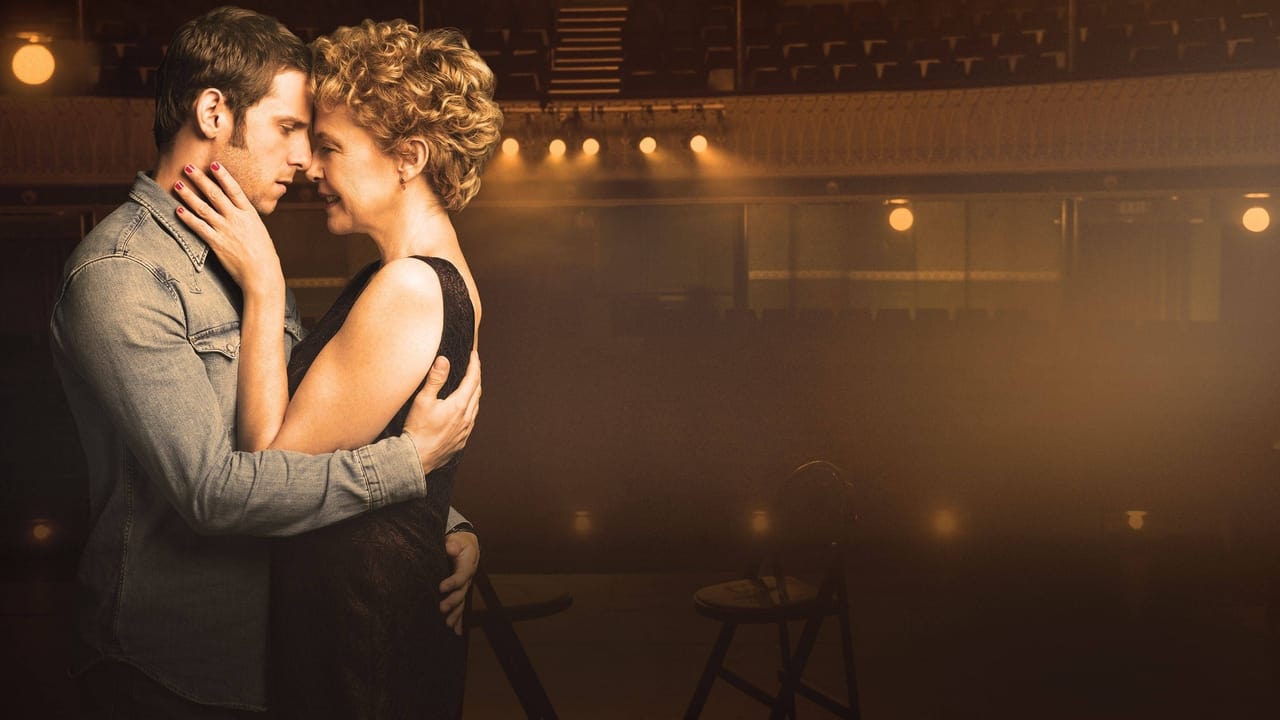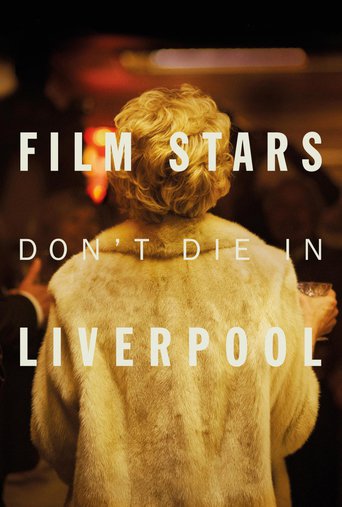



the leading man is my tpye
Wonderful character development!
Truly Dreadful Film
The acting in this movie is really good.
I remember the first time I saw Gloria Grahame on screen it was in the theater in Oklahoma where she played goodhearted good time girl Ado Annie. She played a lot of good time girls in more serious films as well. My best memories of her on the screen were in The Big Heat and Not As A Stranger. During her peak years in the Fifties Gloria Grahame got the first call when one had to cast a woman of easy virtue. She won an Oscar for The Bad And The Beautiful for a woman who is led astray. Usually Gloria did the leading.Annette Bening did a good job interpreting Gloria Grahame best as she could and she got it 3/4 right. There was only one Gloria and she was unqiue. This shows the sad last two years of her life when her career was pretty well over, but she had hopes of a comeback. She was living in the United Kingdom and hardly a big name any more.But whatever she had in the way of happiness came from a May/December romance with young actor Peter Turner played by Jamie Bell. It wasn't easy at times because Grahame still thought of herself as a big star. Lots of Norma Desmond in that woman.The two best scenes in the film are Gloria's meeting with her mother Vanessa Redgrave and a most jealous sister who tried and didn't have the career Gloria did. The classic has been versus a never was. The sister is played with real bite by Frances Barber. The second is Gloria with her doctor saying she had rejected chemotherapy because she was afraid of losing her hair and she wanted to be castable still. Offers were not really coming the late 70s.The ending is similar to Frances Farmer's end in Will There Ever Be A Morning, poignant and sad. Won't reveal, you have to see it and I defy anyone to have a dry eye.A great tribute to a great star.
View MoreWe loved Film Stars Don't Die in Liverpool. It's a movie that can be enjoyed more than once, and in fact, is even better the second time around. The script, adapted from actor Peter Turner's book, is based on the true story of the final days of Gloria Grahame. Directed like an old-time movie, Paul McGuigan brings to the screen excellent performances by all actors, with exceptional performances from Annette Bening (as usual) and Jamie Bell. This movie is best enjoyed without any preconceived notions, so I will not share anything near a spoiler. Needless to say, however, as most everyone who checks a rating on this movie already knows, a young Peter Turner fell in love with aging Hollywood actress Gloria Grahame, but their time was sadly limited due to Gloria Grahame's cancer.For those who like to know the basis of what they're watching in advance of viewing a film, there is plenty of background information available. For my part, I watched the movie first, then did some research, and then watched it again. Armed with factual information, it was more meaningful seeing it again. While not for the very young, this is a movie most everyone else can enjoy. There's enough life lessons here to leave you thinking.
View MoreLove stories have always framed the narrative of humanity and our hunger for more is never sated. That's why we are fascinated by variations such as gender and age inversions which challenge conventional romantic expectations. They also frame the dramatic bio-pic Film Stars Don't Die in Liverpool (2017), a love story of an ageing femme fatale with a film title that evokes the vanity of stardom. Based on the real-life romance between Gloria Grahame (Annette Bening) and Peter Turner (Jamie Bell), the story unfolds through a series of artfully constructed flashbacks over a decade. We meet them in a 1970s London boarding house, when Turner was at the start of a hopeful career in acting and the 1947 Oscar winning Grahame was barely surviving in theatre and television. The over-awed young actor immediately succumbs to Grahame's star aura and they become lovers. Turner's working-class Liverpool family are astonished when the revered Hollywood star visits their modest home and their shock at the age difference soon dissipates. When Grahame is diagnosed with a terminal illness, the family provides emotional support until her American family intervene.While this dialogue-rich character study is not for everyone, Annette Bening's tour-de-force performance is extraordinary for its portrayal of the darkest and lightest side of the same person. Two details mentioned early linger throughout the film to complicate our view of this relationship between an older woman and someone young enough to be her son. We learn that Grahame once had an affair with a 13-year old stepson whom she later married, and both Grahame and Turner confide to having had gay relationships. Through the prism of today's sexual codes, the film could easily be judgemental but is not.Moral and emotional ambiguity casts a soft light over Grahame. It is impossible to tell when she is emoting genuinely or when she is in character, acting the hopeless romantic or ageing cougar. It is only when her health declines and she must confront mortality that we can sense the human being behind the mask. It takes a special actress to hold together this kaleidoscope of emotions and Bening does it brilliantly. Jamie Bell excels as her leading man, beguiled by the charms of an older woman.There is a self-reflexive side to depicting an icon of classic Hollywood who plays a fading star in the modern era. Bening channels several greats like Katherine Hepburn and even Humphrey Bogart to produce a brooding, mercurial woman struggling to accept that she was "once the great Gloria Grahame". In this way, the story dwells on the backstage world where the distance between actors and their roles can become blurred and chaotic. The result is an engrossing study of the demons that lay in waiting, somewhere in the space beyond stardom.
View MoreWhen Gloria considers playing Juliet she is not just playing for her lover's confirmation of her youthful beauty. She still craves her mother's approval, unsatisfied despite her huge past stardom. The two mothers may center this film. Peter's working-class Liverpool mum Bella (Julie Walters) works the kitchen and has a fully maternal relationship with her three hearty sons. She dreads the 24-hour stopover in Manilla required for her to see her Asian-posted son for possibly the last time. A close family themselves, they can't fathom Gloria's desire not to inform hers of her fatal disease. When Gloria's mother Jeanne (Vanessa Redgrave) brings her other daughter for dinner chez Gloria and Peter, there is none of that rough warmth. Jeanne's pride in Gloria drowns in her own eagerness to recite Shakespeare, from Henry V. Clearly feeling the undervalued child, Gloria's sister seethes in bitter silence and then erupts in insult. Gloria should have played more Shakespeare, her mother avows, effectively disdaining her entire Hollywood career. Her Brit's snobbery contrasts to Bella's immediate and unconditional warmth. Indeed the most intimate bed scene here may be the one where Bella lies beside Gloria, drinking tea, embraces Gloria's casting her as her mother in the last act of her life. Only when she sees the family division she has unwittingly cost does Gloria ask for her son to be called, for her fatal flight back to America. Given the usually egocentric film star, this Gloria is remarkably careful for others. The narrative leaves us sharing Peter's suspicion about her morning "meeting" and then throwing him out. We later see she has been protecting him from her mortal diagnosis and pushing him to return to Liverpool for an audition. Annette Benning draws her Gloria out of her screen and personal persona. She catches the star's sultry voice, cheeky manner, resignation to betrayal and abandonment. This Gloria alternates between a cocky coquettishness and a will of cold steel when aroused, between the B-girl she commonly played and the strong woman who fashioned herself a career in an uncompromising industry, between the black-and-white world of most of her films and the colour of real life. Peter meets that steel when he opines she should play the nurse not Juliette, the bawdy old woman not the young lover. The passions aroused in that exchange light their love affair. She's again offended when his "Stella!" quote implies Gloria is a pathetic drunk, all beauty lost. Her insecurity makes her take his jokes seriously. In their first meeting Gloria asks Peter in to help her practice the Hustle for her dance class. At the tail end of a long career she's still trying to keep up with the times. And she can, as they prove fine partners. They are decades apart in age and in career. When they meet she's touring as the gracelessly aging Amanda in The Glass Menagerie; he is a supporter player in a current farce. But offstage they dance and love well together. So she wants to die in his and Bella's care, The narrative structure shifts between Gloria's last days and Peter's memories of their past. This allows for a scene's replay, as in the different perspectives we get on their break-up in New York. But it also catches the doubled lifespan of a film star. The actor may die but the roles live on in celluloid. Film stars don't die in Liverpool - or anywhere else - so long as their roles replay. There's a cost. The star may age as a woman but she stays ever young onscreen. So Gloria needs constant assurance she's still beautiful. She remains in competition with her past self. Bella may dye her hair but she has none of Gloria's need for that constant reassurance. She earlier refused cancer treatment because she needed her hair to extend her acting career. Aptly the film's last image of Gloria is touchingly bathetic. She appears in the grainy black-and-white of the Oscar telecast, receiving from the unblushing Edmund Gwenn her Best Supporting Actress Award for The Bad and Beautiful. That one was in colour, but here we only see her noirs. Her brisk, no-nonsense character is epitomized by her thank-you speech: "Thank you." Even in that early period, before the current long windy pages of thanks, emcee Bob Hope is still taken aback by her efficiency. This film is a worthy, nuanced addition to our pantheon of mythologized aging screen goddesses. This Gloria didn't ascend to a wealthy marriage like Joan Crawford (Mrs Pepsi Cola) or Grace Kelly (Monaco). She didn't dissolve into an inculcated addictiveness like the real Judy Garland or follow her faithful supportive wife role in A Star is Born. She didn't resurrect herself in grand guignol like Bette Davis or retreat into delusions like the Gloria Swanson character in Sunset Boulevard. She wasn't subverted or overthrown as in All About Eve. Gloria kept her self-respect and independence, risking her life to keep working as she had to, welcoming a new love, then setting him free to protect him. She happened to find through him the mother's unconditional love she hadn't known.
View More